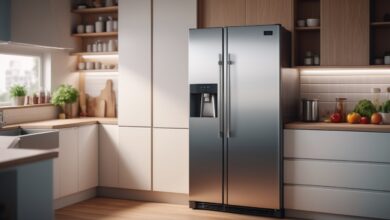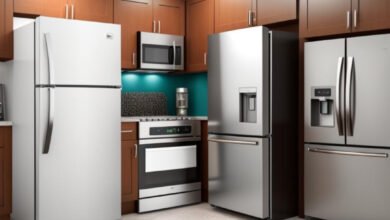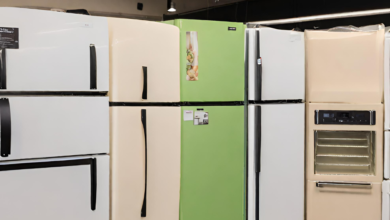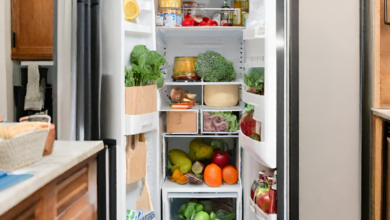Choosing an Eco-Conscious Refrigerator for Your Home
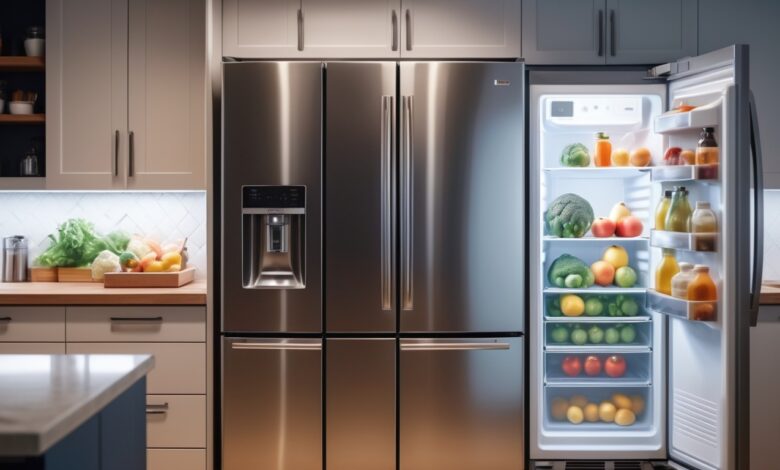
In today’s world, where environmental concerns are at the forefront of our minds, making eco-conscious choices has become increasingly important. One area where we can make a significant impact is in our choice of household appliances, such as refrigerators. In this detailed blog, we will explore the various aspects of choosing an eco-conscious refrigerator for your home, covering everything from energy efficiency and materials used to innovative technologies and disposal methods.
Section 1: Understanding Energy Efficiency
1.1 Energy Star Certification
When it comes to eco-conscious refrigerators, the first thing to look for is the Energy Star certification. Energy Star is a program backed by the U.S. Environmental Protection Agency (EPA) that identifies energy-efficient products. Refrigerators with the Energy Star label meet strict energy efficiency guidelines, helping you reduce both your carbon footprint and energy bills.
1.2 Inverter Technology
Consider refrigerators with inverter technology, which adjusts the compressor speed according to the cooling demand. This results in better energy efficiency, as the compressor doesn’t need to work at full capacity constantly. Inverter technology also helps maintain a more consistent temperature inside the fridge, preserving food for longer periods.
1.3 Dual Compressors
Some high-end eco-conscious refrigerators come equipped with dual compressors. This feature allows the refrigerator and freezer to operate independently, optimizing energy usage. When one compartment doesn’t need cooling, its compressor can shut down while the other continues to function, further saving energy.
Section 2: Sustainable Materials and Design
2.1 Recyclable Materials
Choose a refrigerator that incorporates recyclable materials in its construction. Look for information about the materials used in the frame, shelves, and insulation. Manufacturers that prioritize recyclability contribute to reducing the environmental impact of appliance production.
2.2 Bamboo and Recycled Plastic Components
For a truly eco-conscious choice, consider refrigerators with components made from sustainable materials such as bamboo and recycled plastics. These materials not only reduce the demand for virgin resources but also contribute to lowering the carbon footprint associated with the manufacturing process.
2.3 Modular and Repairable Design
Opt for refrigerators designed with modularity in mind. Appliances that allow for easy disassembly and repair are more environmentally friendly. Modular designs facilitate the replacement of specific components, extending the lifespan of the appliance and reducing electronic waste.
Section 3: Innovative Technologies for Sustainability
3.1 Smart Sensors and Adaptive Cooling
Look for refrigerators equipped with smart sensors that monitor usage patterns and adjust cooling settings accordingly. Adaptive cooling technology ensures that the appliance operates efficiently based on real-time needs, reducing unnecessary energy consumption.
3.2 Vacuum Insulation Panels
Consider refrigerators featuring vacuum insulation panels (VIPs). These panels are more effective than traditional insulation materials, allowing for thinner walls without compromising efficiency. Thinner walls mean more space inside the refrigerator and less material used in its construction.
3.3 Solar-Powered Refrigeration
For those looking to take sustainability to the next level, explore refrigerators that integrate solar-powered components. Some models come with built-in solar panels on the exterior, harnessing sunlight to supplement the appliance’s power needs. While not the primary power source, solar panels can contribute to overall energy efficiency.
Section 4: Water and Ice Dispensing Efficiency
4.1 Water Filtration Systems
Many refrigerators come with water and ice dispensers. Opt for models with advanced water filtration systems to reduce the need for bottled water. This not only saves money in the long run but also minimizes plastic waste associated with single-use water bottles.
4.2 Ice Maker Efficiency
Consider the efficiency of the refrigerator’s ice maker. Some models have advanced features like sensor-controlled ice production, which adjusts the ice-making process based on demand. This ensures that the ice maker operates optimally without wasting energy on excessive ice production.
Section 5: Proper Disposal and End-of-Life Considerations
5.1 Recycling Programs
Before purchasing a new refrigerator, inquire about the manufacturer’s recycling programs. Many reputable brands offer recycling services for old appliances, ensuring that they are disposed of responsibly. Some companies even provide incentives for returning old units, encouraging consumers to participate in eco-friendly disposal practices.
5.2 Donating or Selling Old Appliances
If your current refrigerator is still in working condition, consider donating it to charitable organizations or selling it second-hand. This extends the lifespan of the appliance and reduces the overall environmental impact associated with its disposal.
5.3 Responsible Disposal Facilities
In the event that recycling or donation is not feasible, ensure that the appliance is disposed of at a certified electronic waste recycling facility. These facilities follow proper procedures for dismantling and recycling electronic components, preventing harmful materials from ending up in landfills.
Section 6: Budget Considerations and Incentives
6.1 Long-Term Cost Savings
While eco-conscious refrigerators may have a higher upfront cost, consider the long-term savings in energy bills. Energy-efficient models often pay for themselves over time, making them a wise investment for both your wallet and the environment.
6.2 Government Rebates and Incentives
Explore potential government rebates or incentives for purchasing energy-efficient appliances. Many regions offer financial incentives to encourage consumers to choose eco-friendly options. These incentives can significantly offset the initial cost of a high-efficiency refrigerator.
Conclusion
In conclusion, choosing an eco-conscious refrigerator involves considering various factors, from energy efficiency and sustainable materials to innovative technologies and end-of-life disposal methods. By making informed decisions and opting for appliances with a lower environmental impact, you not only contribute to a greener planet but also enjoy long-term cost savings. Take the time to research and compare different models, keeping in mind your specific needs and the broader goal of minimizing your ecological footprint.
